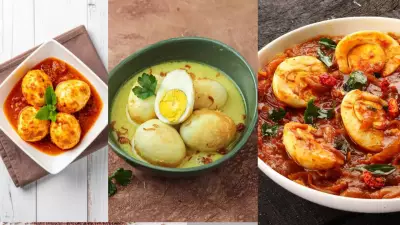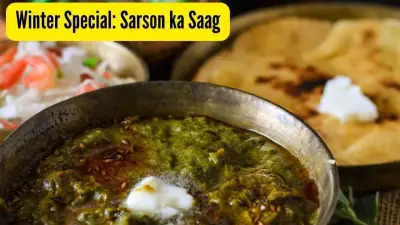
As the cool breeze sweeps through Bengaluru, locals seek comfort in a steaming bowl of Kaal Soup - the city's legendary mutton leg soup that has warmed hearts and souls for decades. This traditional delicacy isn't just food; it's a cultural experience that represents Bengaluru's rich culinary heritage.
The Secret Behind Bengaluru's Favorite Winter Elixir
Master chef Oggarane Dabbi Murali, renowned for preserving authentic Karnataka recipes, has finally revealed the secrets behind this iconic dish. "Kaal Soup isn't just about taste; it's about nutrition and tradition," explains Murali. "The slow-cooking process extracts all the essential nutrients from the mutton legs, creating a broth that's both delicious and therapeutic."
Why Kaal Soup Stands Apart
Unlike regular mutton soups, Kaal Soup focuses specifically on the leg bones and meat, which are rich in marrow and collagen. This gives the soup its distinctive rich texture and deep flavor profile that has made it a staple in many Bengaluru households and local eateries.
The Traditional Preparation Method
Key ingredients include:
- Fresh mutton legs with bones
- Traditional Indian spices including black pepper, cumin, and coriander
- Fresh herbs and garlic
- Basic vegetables for enhanced flavor
The magic happens during the slow-cooking process, where the mutton legs simmer for hours, allowing the bones to release their rich marrow and nutrients into the broth. This creates a soup that's not only flavorful but also packed with health benefits.
Health Benefits That Make It Special
Kaal Soup is particularly valued for its medicinal properties. The collagen from the bones supports joint health, while the rich mineral content helps boost immunity - making it especially popular during seasonal changes and colder months.
"Many of our regular customers swear by Kaal Soup for relieving joint pain and building strength," shares Murali. "It's common to see families bringing their elderly members specifically for this nutritious soup."
Preserving Culinary Heritage
Through sharing this recipe, Oggarane Dabbi Murali aims to preserve an important part of Karnataka's culinary tradition. "These traditional recipes are our heritage," he emphasizes. "They connect us to our roots and tell the story of our culture through food."
Whether you're a Bengaluru native missing home flavors or a food enthusiast exploring regional Indian cuisine, this Kaal Soup recipe offers a genuine taste of the city's famous food culture that continues to thrive in local kitchens and restaurants across the Silicon Valley of India.





